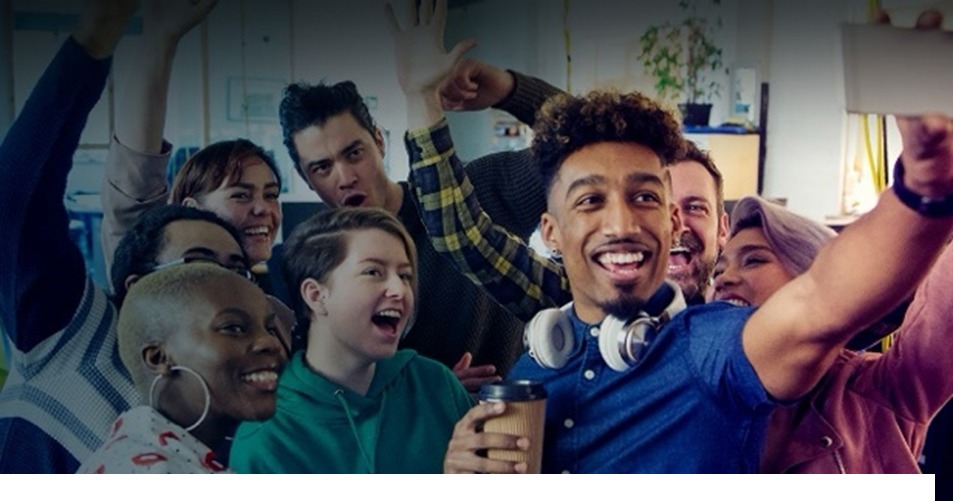
From the hardworking baby boomers to the tech-savvy Gen Z’s, each generation brings unique perspectives. However, in the digital surge, distinguishing truth from deception is important. Trends from OFCOM studies reveal younger users’ exposure to fake news. Interviews with Gen Z’s concerns about misinformation’s influence and the urgent need for education and government intervention. As society tackles this challenge, the question looms: are young minds so saturated with falsehoods that they shape their reality? How do we safeguard future generations from this influence?
When you first hear the term ‘Generational Theory’ what comes to mind? The author Yolande Knight suggests people born around the same time share similar experiences and values that shape their view of the world. People born between 1946 and 1964, ‘baby boomers’ arguably are best known for their idealism and work ethic as well as their traditional family values.
Yolande Knight’s paper ‘Talkin’ ‘bout my generation: a brief introduction to Generational Theory, https://www.yumpu.com/en/document/read/21534304/talkin-bout-my-generation-a-brief-introduction-to-generational-theoryexplains that people born between 1965 and 1980 were known as Generation X when economic and societal changes were occurring. Generation X is known for their independence and adaptability in life.
From the period between 1982 and 1996, Millennials were brought up when technology and the internet started to affect most people’s lives. Millennials are known for their technology knowledge and social consciousness.
Navigating the Maze of Fake News – Can They Spot the Real Deal?
OFCOM’s 2022 study https://www.ofcom.org.uk/__data/assets/pdf_file/0020/234362/adults-media-use-and-attitudes-report-2022.pdf has shown a concerning trend among younger users in their riveting exploration of media literacy spanning across each age group. Three-quarters of participants displayed a knack for identifying suspicious emails, the younger demographic aged 16 – 34 showed confidence but failed, potentially exposing themselves to scams and misinformation.

Image taken from bing.com
The study surveyed media literacy including behaviour, attitudes, and understanding among people between the ages of 16 – 50 plus. For those who were able to identify a fake profile, text-based factors such as the profile description and the links were commonly viewed as indicators. Those who thought the profiles were real, often focused on image-based factors such as the profile picture. However, in a separate 2023 study,https://www.ofcom.org.uk/__data/assets/pdf_file/0027/255852/childrens-media-use-and-attitudes-report-2023.pdf participants used related information and personal experience to assess the profile validity with specific details such as usernames and follower ratios. TikTok emerged as a popular app for young users aged 16-24 at seventy- four percent while other adults only use the platform at thirty – four percent.
OFCOM Study, 2022
In today’s digital era, sifting through the lack of authenticity of information circling the internet, it is important for people to distinguish online truth. A whopping seventy – seven percent of users think whether the information they come across is truthful and when it comes to articles, sixty – one percent of them debate whether it is truthful or not. In a fantastic trend, participants verified the information at forty- one percent, source trustworthiness also at forty-one percent, and the rest – checking if the information is posted elsewhere.
In 2023, OFCOM conducted a separate study on media attitudes for children aged 12-17, and twenty – three percent of those were confident in their ability to differentiate between real and fake online but were not able to. Want to test your ability? Try this online test at Internet Matters to see if you are as knowledgeable as you thinkhttps://www.internetmatters.org/hub/quiz/what-is-fake-news-questions-for-teens-14-plus/?step=get-ready
Do They Care? Insights from Interviews
The team interviewed four young people from the Generation Z era, to find out their views on how important media literacy and fake news are to them. They were asked a series of questions, about their views and actions on current situations. Three candidates are made up of the ages 18 – 20 years old hailing from London (Earls Court and Chelsea). Savannah and Antonio are both 18 years old, and Elias is 20 years old.
Elias
Elias believes that artificial intelligence (AI) can help prevent the spread of fake news on social media by analysing video transcripts to identify popular topics and cross-referencing phrases with reliable sources he mentions “I think AI can help prevent fake news from being spread through the use of analysis of, like, transcripts from videos. So, each video will be recorded with a script of what is being said in that video”. He https://youtu.be/B2B3ON0g0PQalso discusses a specific instance of fake news on the ‘Ghost of Kyiv’, explaining that it was easily identifiable as propaganda Elias states “essentially, they presented they made a myth about a pilot who took out 6 fighter jets in one flight, and it added, like, a fear factor about them. But it turns out, obviously, you could kind of hear from that that that’s quite unbelievable right off the bat [sic]”.
Elias has the confidence to say he can tell between fake and real posts on social media and suggests more platforms should use a method of a public warning instead of removing posts outrightElias voices his scepticism about his generation’s concern about fake news and how they tend to accept fake news at face value rather than fact-checking.He goes on to say “I don’t think they care how genuine information is, to be honest. They’d rather take everything at face value and just assume that because this person’s, uh, got a large, like, a large mass of following, they assume that it’s true. So, they just assume that that person’s reliability and authenticity is based off the amount of people that are going to that person for information. so, they never really fact-check anything” [sic].
Antonio
When asked how AI could be used to detect fake news? Antonio speaks about how AI can check for robots and search the internet to verify the authenticity of articles. He talks about the trend of fake news imploding on Twitter and Instagram and says he looks at comments from the public as a way of deciding its authenticity.Antonio says “I look on Twitter and, um, they have community notes. Instagram has started to do that as well, where they just have, like, communithttps://youtu.be/yIViAhmwVzUy notes, and users can put whether this is fake or false information or not. Okay. So usually, that’s my, like, source of my way of telling what’s true or not [sic]”.https://youtu.be/JCYC0q4M6xU
Antonio also thinks his generation cares about misinformation; however, they are accustomed to it and often rely on themselves to figure out the truth from the false he says “definitely. Yeah. I think we’re just also used to it. So, when we see something fake, it’s not really, like, you know, we flag it or, like, you know, we report it or something. We just kinda think we just usually expect to know what’s fake and what’s not [sic]”.
Savannah
Savannah understands the importance of personal research to verify the truth of online content, she suggests Google searches or referring to news articles. She recommends against believing everything online and she recommends relying on trusted sources for specific information. Savannah claims her generation bases their belief on online content whether it makes sense and is logical therefore not having a reason to verify it “Yes. I do. I think they have a big responsibility to make sure that false news isn’t being, um, put on their platforms because, um, this generation actually, we are a generation of really believing what we see in the media. And we almost, like, see it as bible [sic]”. https://youtu.be/hfrz7PSZKCE
Uniting Against Fake News
All three interviewees’ views on combatting fake news and verifying online content are similar. They have enough knowledge to recognise how much AI plays a part in spreading fake news. Antonio, Elias, and Savannah have almost identical ways of fact-checking; by using Google, looking for articles alike, and checking comments left by the public. Interestingly, all three suggest the importance of educating young people on how to detect fake news to promote prevention. Elias and Savannah have suggested the government should play a bigger part in this, by implementing more guidelines on social media platforms.

Image taken from bing.com
Having only interviewed a minute amount of the Gen Z population, leaves the burning question, do people’s ages influence how they see the world? Elias has spoken about the young generation believing in ‘facts and opinions’ from Social Media celebrities even though the information may not be true. Have young people been so accustomed to fake news and misinformation that it has become part of their online world? So much so, that it has influenced their opinions and thoughts on current affairs. Although, the interviewees initially look for verification if they are interested in the news, what about the next generation?
We would love to hear your thoughts on the subject discussed in this article. Please click below to leave a comment.
https://disq.us/t/4ojbatk
Thank you to all the participants involved in this article.
https://sanabatoolkazmiblogs.com/wp-content/uploads/2024/05/article-1.docx